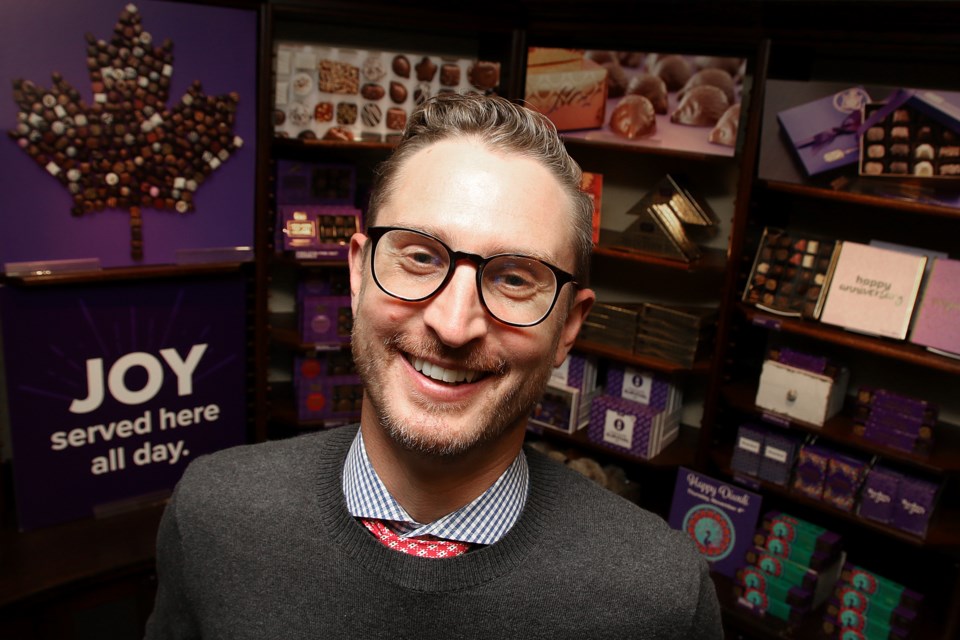B.C. manufacturers told BIV they are relieved that Prime Minister Justin Trudeau this afternoon said the U.S. will pause for "at least 30 days" its planned 25-per-cent tariff on all Canadian imports, except for energy, which would have carried a 10-per-cent tariff starting tomorrow.
This will also mean a pause in the retaliatory 25-per-cent tariffs that Trudeau said Canada would have imposed on U.S. imports also starting tomorrow.
"We're relieved but it's definitely a wake-up call for Canada," Kits Eyewear Ltd. (TSX:KITS) CEO Roger Hardy told BIV minutes after Trudeau's post on X at 1:36 pm to announce the news.
Hardy said about 60 per cent of Kits' sales are to U.S. consumers. Most of that is contact lens sales and those products are made in the U.S. so they would not have been subject to any tariff, he said.
Some eyeglasses are sold to U.S. consumers and might have been subject to the tariffs, he added.
Hardy explained that the White House had put out statements that included conflicting information so he was not sure whether any eyewear would have been subject to tariffs, or not. It is possible that eyewear might have been exempted from tariffs because it is a medical product, he said.
A small amount of Kits' products are made in China and will be subject to an additional 10-per-cent tariff, which is still slated to go into effect tomorrow. This is on top of an existing 25-per-cent U.S. tariff on Chinese goods.
Hardy said his company has not yet decided whether it would absorb the cost of those tariffs.
Kits imports some products from the U.S. but Hardy said he did not think that Canadian retaliatory tariffs would have been levied on those goods.
"Our expectation was that the vision-care products were excluded because it's very non-discretionary," he said.
He stressed that Kits is a Canadian company and it has about 200 employees in Vancouver. Had tariffs gone into effect some customers may have gravitated toward Kits and away from foreign-owned competitors such as Clearly.
Another manufacturer set to feel the sting of higher U.S. tariffs on China is Richmond-based, baby-furniture maker Storkcraft.
CEO Adam Segal told BIV that most of his company's sales are to U.S. retailers and consumers, and about one-third of his products are made in China.
Segal said that his production in China would not be able to shift to the U.S. because costs would be prohibitive stateside.
Tariffs will force Storkcraft to raise prices, said Segal, whose company employs about 70 people, with about 65 of those workers based in B.C.
Tariffs, he stressed will hurt U.S. consumers as that price increase will be passed on.
"Trump has said tariffs are not inflationary, but tariffs are inflationary," Segal said. "This will drive prices higher."
Manufacturers with no business in China are relieved with the pause in the U.S.-Canada tariff war.
Purdys Chocolatier president Lawrence Eade told BIV that one of his company's biggest-selling products is one with roasted pecans, caramel and chocolate, called Sweet Georgia Browns.
Pecans are the priciest item in the product, and Purdys imports those nuts from the U.S, state of Georgia, he said.
Had Purdys been hit with Canadian retaliatory tariffs of 25 per cent on those pecans, Eade said that his company would have absorbed the cost. He stressed that Purdys is a Canadian company and that it employs about 1,200 people.
Only about one per cent of Purdys' sales is into the U.S., via e-commerce, Eade added.
Had tariffs and retailiatory tariffs gone into effect, Eade said that he hoped Canadian customers would choose his company over foreign competitors in part to support the Canadian economy.
Some B.C. manufacturers would have avoided tariffs even if they had gone ahead
Some B.C. manufacturers had operational structures that would have helped them skirt the impact of tariffs and retaliatory tariffs.
"In general terms, we manufacture products in the jurisdiction that we sell them," Premium Brands Holding Corp. (TSX:PBH) CEO George Paleologou told BIV.
"We try to minimize the crossing of borders as much as possible. We believe that tariffs and counter tariffs [would have been] neutral to us as some of our companies will benefit and some will get hurt but the two will offset."
Over at Otter Co-op, associate vice-president of agricultural solutions, Vafa Alizadeh, told BIV that while most of his company's sales come from selling food, fuel and other products in co-operative stores, the company also annually manufactures about $50 million worth of animal feed that it sells to farmers.
To make that animal feed, Otter imports soybeans and corn from the U.S. Midwest. Soy and corn were not included in the lengthy list of items that would have carried retaliatory tariffs.
Alizadeh said his company might have been able to pivot and buy Canadian corn but there is no Canadian option for buying soybeans.



